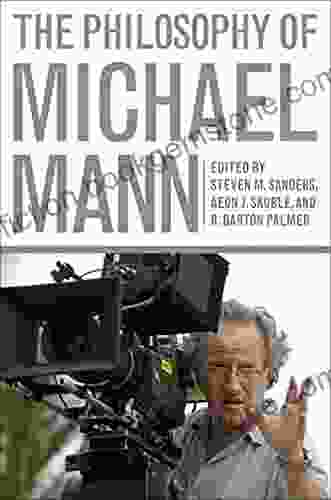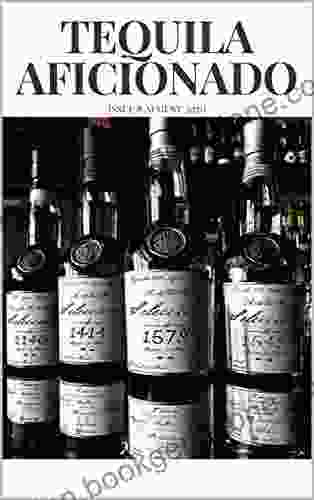The Philosophy of Michael Mann: The Philosophy of Popular Culture

Michael Mann is one of the most acclaimed directors working today. His films are known for their stylish visuals, complex characters, and unflinching realism. But beyond their entertainment value, Mann's films also offer a unique philosophical perspective on popular culture.
Mann's philosophy is rooted in the idea that popular culture is a reflection of our deepest fears and desires. In his films, he explores the dark side of human nature, the violence that lurks beneath the surface of our everyday lives. But he also finds hope in the human spirit, the capacity for love and redemption even in the most difficult circumstances.
5 out of 5
| Language | : | English |
| File size | : | 1175 KB |
| Text-to-Speech | : | Enabled |
| Screen Reader | : | Supported |
| Enhanced typesetting | : | Enabled |
| Word Wise | : | Enabled |
| Print length | : | 286 pages |
| Lending | : | Enabled |
One of the most striking features of Mann's films is their use of violence. Violence is a constant presence in Mann's work, but it is never gratuitous. Mann uses violence to explore the nature of evil, the cycle of revenge, and the fragility of human life.
In Heat (1995),Mann's masterpiece, two master criminals, played by Robert De Niro and Al Pacino, are locked in a deadly game of cat and mouse. The film is a meditation on the nature of crime and the cost of obsession. Mann shows us the violence that these men do, but he also shows us the humanity that remains beneath their criminal exteriors.
In The Insider (1999),Mann tells the true story of Jeffrey Wigand, a tobacco industry whistleblower who risked his life to expose the dangers of cigarettes. The film is a powerful indictment of corporate greed and the corruption of the American justice system. But Mann also finds hope in Wigand's story, in his courage and determination to do what is right.
In Collateral (2004),Mann explores the theme of moral ambiguity. Tom Cruise plays a professional assassin who takes a cab driver, played by Jamie Foxx, hostage. The film is a suspenseful thriller, but it is also a meditation on the nature of good and evil. Mann shows us the violence that Cruise's character does, but he also shows us the humanity that remains beneath his cold exterior.
Mann's films are not for everyone. They are often violent, dark, and pessimistic. But they are also brilliant, thought-provoking, and ultimately hopeful. Mann's philosophy is a challenge to our assumptions about popular culture and the human condition. He invites us to look beneath the surface of our everyday lives and to confront the darkness that lurks within us all.
Masculinity and the American Dream
One of the recurring themes in Mann's films is the crisis of masculinity in American culture. His male characters are often flawed and conflicted, struggling to find their place in a world that is increasingly hostile to them.
In Heat, De Niro's character is a career criminal who is torn between his loyalty to his crew and his desire for a normal life. Pacino's character is a cop who is obsessed with his job and willing to sacrifice everything for it. Both men are trapped in a cycle of violence and despair.
In The Insider, Wigand is a family man who is forced to choose between his loyalty to his company and his conscience. He risks his life and his family's safety to expose the dangers of cigarettes. But his sacrifice is ultimately rewarded, as he helps to bring about a change in public policy.
In Collateral, Cruise's character is a professional assassin who is haunted by his past. He is a man who has lost his faith in humanity and in himself. But Foxx's character, a cab driver who is just trying to make a living, shows him that there is still hope for redemption.
Mann's films offer a complex and often pessimistic view of masculinity in American culture. But they also offer a glimmer of hope, a belief that even in the darkest of times, there is always the possibility of redemption.
The Dark Side of the American Dream
Another recurring theme in Mann's films is the dark side of the American Dream. His characters are often driven by greed, ambition, and the desire for success. But their dreams often turn into nightmares, as they become corrupted by the very things they desire.
In Heat, De Niro's character is a career criminal who is motivated by greed. He wants to be the best thief in the world, and he is willing to kill anyone who gets in his way. But his obsession with success ultimately leads to his downfall.
In The Insider, Wigand is a family man who is motivated by a desire to do what is right. He wants to expose the dangers of cigarettes, even though he knows it will put his life and his family's safety at risk. But his courage and determination ultimately lead to a change in public policy.
In Collateral, Cruise's character is a professional assassin who is motivated by a desire for redemption. He wants to atone for his past sins, but he is trapped in a cycle of violence and despair. But Foxx's character, a cab driver who is just trying to make a living, shows him that there is still hope for redemption.
Mann's films offer a cautionary tale about the dark side of the American Dream. He shows us how greed, ambition, and the desire for success can corrupt our souls and lead to our downfall. But he also shows us that there is always the possibility of redemption, even in the darkest of times.
Michael Mann is one of the most important directors working today. His films are brilliant, thought-provoking, and ultimately hopeful. Mann's philosophy is a challenge to our assumptions about popular culture and the human condition. He invites us to look beneath the surface of our everyday lives and to confront the darkness that lurks within us all. But he also offers us a glimmer of hope, a belief that even in the darkest of times, there is always the possibility of redemption.
5 out of 5
| Language | : | English |
| File size | : | 1175 KB |
| Text-to-Speech | : | Enabled |
| Screen Reader | : | Supported |
| Enhanced typesetting | : | Enabled |
| Word Wise | : | Enabled |
| Print length | : | 286 pages |
| Lending | : | Enabled |
Do you want to contribute by writing guest posts on this blog?
Please contact us and send us a resume of previous articles that you have written.
 Best Book
Best Book Page Flip
Page Flip Bookshelf
Bookshelf Literary loom
Literary loom Chapter
Chapter Bookish
Bookish PageTurner
PageTurner Bibliophile
Bibliophile Story
Story Inkwell
Inkwell Bookworm
Bookworm Labyrinth
Labyrinth Plot Twist
Plot Twist Prose
Prose Paperback
Paperback Storyteller
Storyteller Sanctuary
Sanctuary Fiction
Fiction Reading
Reading Chronicle
Chronicle Read
Read Kimberly Adams
Kimberly Adams Amira Hass
Amira Hass Calum Waddell
Calum Waddell Tom Miller
Tom Miller Navid Kermani
Navid Kermani Robb Pearlman
Robb Pearlman Joyce Hicks
Joyce Hicks Christina Ezrahi
Christina Ezrahi Paul Doty
Paul Doty Aminah Smith
Aminah Smith Rahna Reiko Rizzuto
Rahna Reiko Rizzuto Karin Tidbeck
Karin Tidbeck Amy Burkert
Amy Burkert Eva Taylor
Eva Taylor Allison Alexander
Allison Alexander J A Konrath
J A Konrath Amanda Vanever
Amanda Vanever Bethany Robertson
Bethany Robertson Bill Yenne
Bill Yenne Jerry Pournelle
Jerry Pournelle George Puckett
George Puckett Bas Bakker
Bas Bakker Mike Fu
Mike Fu Rabindranath Tagore
Rabindranath Tagore E J Fleming
E J Fleming Alexander Monro
Alexander Monro Nicole Lynn
Nicole Lynn Andrea Coke
Andrea Coke Alexander H Rosenberg
Alexander H Rosenberg Alfred Habegger
Alfred Habegger Kayla Allen
Kayla Allen Alexander Bennett
Alexander Bennett Kimberly Chrisman Campbell
Kimberly Chrisman Campbell Andre Norton
Andre Norton Nancy Jooyoun Kim
Nancy Jooyoun Kim Lauren Wilkinson
Lauren Wilkinson Alyssa Shelasky
Alyssa Shelasky Amber Ruffin
Amber Ruffin Alina Wheeler
Alina Wheeler Duncan M Hamilton
Duncan M Hamilton Allison Brennan
Allison Brennan Ali Dowlatshahi
Ali Dowlatshahi Dov S S Simens
Dov S S Simens Oleg Atbashian
Oleg Atbashian Peter Cronin
Peter Cronin Alexander Sergeant
Alexander Sergeant Amanda Leduc
Amanda Leduc Ronni L Gordon
Ronni L Gordon Alexandra Shulman
Alexandra Shulman International Learning Academy
International Learning Academy Alexandria House
Alexandria House Margaret Winslow
Margaret Winslow Gini Koch
Gini Koch David Larson
David Larson Ali Bey
Ali Bey Kenny Roy
Kenny Roy Beth Brown Reinsel
Beth Brown Reinsel Alyssa Campbell
Alyssa Campbell Alexander Speltz
Alexander Speltz John Jackson Miller
John Jackson Miller Hitomi Shida
Hitomi Shida R D Brady
R D Brady Lance Richardson
Lance Richardson Alvaro Castagnet
Alvaro Castagnet Chanel Cleeton
Chanel Cleeton Matthew Gabriele
Matthew Gabriele Alexey Osadchuk
Alexey Osadchuk Alexandra Warren
Alexandra Warren Dianne Duvall
Dianne Duvall Fay Simpson
Fay Simpson Jeandre Gerber
Jeandre Gerber Karine Jean Pierre
Karine Jean Pierre Lucia Peters
Lucia Peters Alice Walker
Alice Walker Mark De Silva
Mark De Silva Jamie Ibson
Jamie Ibson Alicia Hall
Alicia Hall Rudy Wiebe
Rudy Wiebe Simon J Hall
Simon J Hall Peter Lane
Peter Lane Anna Viroubova
Anna Viroubova Andre Gonzalez
Andre Gonzalez Allan A Macfarlan
Allan A Macfarlan Jesse Fox
Jesse Fox Arlen Gargagliano
Arlen Gargagliano Wolfedale Press
Wolfedale Press Amanda Barnes
Amanda Barnes Alistair Moffat
Alistair Moffat Alun Anderson
Alun Anderson Amanda Kuster
Amanda Kuster Nickey Knighton
Nickey Knighton Martin Gayford
Martin Gayford Allen Rucker
Allen Rucker Reese Patton
Reese Patton Edd Staton
Edd Staton Amir Eshel
Amir Eshel Bern Will Brown
Bern Will Brown Johanna Garton
Johanna Garton Rachel Rhys
Rachel Rhys Peter Schiessl
Peter Schiessl Bob Reynolds
Bob Reynolds Robyn Davidson
Robyn Davidson Michael V Hayden
Michael V Hayden Stan Grant
Stan Grant Kathryn Cramer
Kathryn Cramer Alexandra Sokoloff
Alexandra Sokoloff Terry Schott
Terry Schott Michelle Elaine
Michelle Elaine Anand Prahlad
Anand Prahlad Alison King
Alison King Liza Gershman
Liza Gershman Masa Seikou
Masa Seikou Thomas Sanchez
Thomas Sanchez William Bennet Stevenson
William Bennet Stevenson Amy Poehler
Amy Poehler Karrine Steffans
Karrine Steffans Lan Sluder
Lan Sluder Ana Victoria Calderon
Ana Victoria Calderon Charles Evans
Charles Evans Alice Albinia
Alice Albinia Alida Nugent
Alida Nugent Brad Prager
Brad Prager Lisa Pietsch
Lisa Pietsch Bruce Larson
Bruce Larson Kimberly Brown
Kimberly Brown Ross Gay
Ross Gay Alison Freer
Alison Freer Richard Bell
Richard Bell Alwyn Crawshaw
Alwyn Crawshaw Rosi Jarussi
Rosi Jarussi Michael D Pitt
Michael D Pitt Amy Kuivalainen
Amy Kuivalainen L Smith
L Smith Yoshiko Uchida
Yoshiko Uchida John Bester
John Bester Alice Wong
Alice Wong Kevin Hearne
Kevin Hearne Francis A Schaeffer
Francis A Schaeffer Rysa Walker
Rysa Walker Peter L Winkler
Peter L Winkler M E Thorne
M E Thorne J N Chaney
J N Chaney Anthony Galvin
Anthony Galvin Leticia Ordaz
Leticia Ordaz Thomas Powers
Thomas Powers Gordon K Hirabayashi
Gordon K Hirabayashi Johannes Vloothuis
Johannes Vloothuis Ammianus Marcellinus
Ammianus Marcellinus Burne Hogarth
Burne Hogarth Helen Mcginn
Helen Mcginn Paul Adams
Paul Adams Alfred Bester
Alfred Bester Emily Crafts
Emily Crafts L A Braun
L A Braun Carol Belanger Grafton
Carol Belanger Grafton Ortrun Egelkraut
Ortrun Egelkraut Amy Odell
Amy Odell Alice Henderson
Alice Henderson Theresa Weir
Theresa Weir Jessica Fishman
Jessica Fishman Andrew Gillsmith
Andrew Gillsmith Glyn Macey
Glyn Macey G Michael Dobbs
G Michael Dobbs Stephen Michael Shearer
Stephen Michael Shearer Tom Heintjes
Tom Heintjes Patrick Devaney
Patrick Devaney Julia Quinn
Julia Quinn Lydia Sloan Cline
Lydia Sloan Cline Amy Butler
Amy Butler Amin Maalouf
Amin Maalouf Jim Stott
Jim Stott Amaka Samrah Linus
Amaka Samrah Linus Cormac Mccarthy
Cormac Mccarthy Grace M Cho
Grace M Cho M Gaspary
M Gaspary Amber Brock
Amber Brock Theresa Goodrich
Theresa Goodrich Chris Peterson
Chris Peterson Alice Hoffman
Alice Hoffman Alistair Mcguinness
Alistair Mcguinness C Vann Woodward
C Vann Woodward Sherilyn Connelly
Sherilyn Connelly Deidre M Pike
Deidre M Pike Alice Procter
Alice Procter Jared Mandani
Jared Mandani Dee Brown
Dee Brown Christopher Lee Philips
Christopher Lee Philips Hans Ulrich Obrist
Hans Ulrich Obrist Eric Flint
Eric Flint Amanda Hislop
Amanda Hislop Aliette De Bodard
Aliette De Bodard Victor Villasenor
Victor Villasenor Michael Pronko
Michael Pronko Alyn Shipton
Alyn Shipton Allan R Ellenberger
Allan R Ellenberger Rukmini Vijayakumar
Rukmini Vijayakumar America Ferrera
America Ferrera Allan Ira Bass
Allan Ira Bass Christopher Finch
Christopher Finch Maureen Paton
Maureen Paton Mz Lady P
Mz Lady P Alistair Maclean
Alistair Maclean Amanda B Cosgrove
Amanda B Cosgrove Paul Tremblay
Paul Tremblay Faya Causey
Faya Causey Patricia Konczynski Jennifer Herbst
Patricia Konczynski Jennifer Herbst Tiye Love
Tiye Love Lan Yan
Lan Yan Ronald Florence
Ronald Florence Justin Eisinger
Justin Eisinger Amelia Pang
Amelia Pang Jan Dalley
Jan Dalley David Bergsland
David Bergsland Bill Cunningham
Bill Cunningham Raul Caceres M D
Raul Caceres M D Clary Illian
Clary Illian Eleanor Roosevelt
Eleanor Roosevelt W E B Griffin
W E B Griffin Christopher Bolton
Christopher Bolton Alexander Mackenzie
Alexander Mackenzie Allan Neuwirth
Allan Neuwirth Dreamstorm Publications
Dreamstorm Publications Joshua Jelly Schapiro
Joshua Jelly Schapiro Frances F Dunwell
Frances F Dunwell Amy Mckinley
Amy Mckinley Christopher Golden
Christopher Golden Elizabeth Taylor
Elizabeth Taylor Aline Ash
Aline Ash Robert Blumenfeld
Robert Blumenfeld Cap Daniels
Cap Daniels Robert J Sawyer
Robert J Sawyer Richard Price
Richard Price Pamela Spiro Wagner
Pamela Spiro Wagner Amy Chavez
Amy Chavez Jade Asikiwe
Jade Asikiwe Sharon Lee
Sharon Lee Alphonso Brown
Alphonso Brown William D Crump
William D Crump Jade Blue
Jade Blue Allegra Kent
Allegra Kent Ian Anderson
Ian Anderson M M Kaye
M M Kaye Hazel V Carby
Hazel V Carby Amor Fenn
Amor Fenn Barbara Hambly
Barbara Hambly Attica Locke
Attica Locke Raine Thomas
Raine Thomas Ashley Niedringhaus
Ashley Niedringhaus Margaret B Blackman
Margaret B Blackman Bill Zarchy
Bill Zarchy Allan Kaster
Allan Kaster Jo Weldon
Jo Weldon Alyona Nickelsen
Alyona Nickelsen Lianne Dillsworth
Lianne Dillsworth Meredith Hall
Meredith Hall John Steinbeck
John Steinbeck Alia Thabit
Alia Thabit Thomas Hope
Thomas Hope Amanda Grange
Amanda Grange Hazel Soan
Hazel Soan Studio Atelier 21
Studio Atelier 21 Kenji Yoshino
Kenji Yoshino Anders De La Motte
Anders De La Motte Christine Chitnis
Christine Chitnis Hunter Biden
Hunter Biden Amaryllis Fox
Amaryllis Fox Anand Pandian
Anand Pandian E M Foner
E M Foner Ali Duffy
Ali Duffy Anchee Min
Anchee Min Alexandre Roger
Alexandre Roger Allie Allen
Allie Allen Charles Martin
Charles Martin Jeff Chenault
Jeff Chenault Katrina Jackson
Katrina Jackson Brynne Asher
Brynne Asher Warren Kozak
Warren Kozak Alison Ross
Alison Ross Stephen Birmingham
Stephen Birmingham Phil Huddleston
Phil Huddleston Laura Dave
Laura Dave Seth Emerson
Seth Emerson Gabriella Catalano
Gabriella Catalano Dave Jay
Dave Jay Tiffani Goff
Tiffani Goff Sally K May
Sally K May Margery Leveen Sher
Margery Leveen Sher Eve Vaughn
Eve Vaughn Kindle Edition
Kindle Edition Erik Weihenmayer
Erik Weihenmayer Allan Zola Kronzek
Allan Zola Kronzek Karen Falk
Karen Falk Brandon Sanderson
Brandon Sanderson Lalita Tademy
Lalita Tademy Robert Chick
Robert Chick Amy S F Lutz
Amy S F Lutz Steven Howell
Steven Howell Ma Jian
Ma Jian Krista Luna
Krista Luna Samira Shackle
Samira Shackle Alison Lumbatis
Alison Lumbatis Alfred Hitchcock
Alfred Hitchcock Alma Nilsson
Alma Nilsson Casey Watson
Casey Watson Anne M Scott
Anne M Scott Alexander Weinstein
Alexander Weinstein Nigel Randell
Nigel Randell Anna Mason
Anna Mason Yolanda Lopez
Yolanda Lopez Alexandra Silber
Alexandra Silber Margaret Bunson
Margaret Bunson Alfred Gell
Alfred Gell Will Dodson
Will Dodson Chris Vines
Chris Vines Amanda Milo
Amanda Milo Levi Zelkind
Levi Zelkind Pauli Murray
Pauli Murray Kevin Steverson
Kevin Steverson Montana Hodges
Montana Hodges Peter Egan
Peter Egan Vito Adriaensens
Vito Adriaensens Simon Goldhill
Simon Goldhill Guy Wann
Guy Wann Kate Field
Kate Field Rana Mitter
Rana Mitter Robert K Massie
Robert K Massie Alicia Malone
Alicia Malone Christie Golden
Christie Golden Allison Branscombe
Allison Branscombe Amanda Bouchet
Amanda Bouchet Gerry Souter
Gerry Souter Michael Powell
Michael Powell Dara Mcanulty
Dara Mcanulty Alyson Belle
Alyson Belle Suzie Mackenzie
Suzie Mackenzie Amihan Balasabas
Amihan Balasabas Mark Edlitz
Mark Edlitz Amber Easby
Amber Easby Winifred Aldrich
Winifred Aldrich Alison Weir
Alison Weir Johan Huizinga
Johan Huizinga Tessa Dare
Tessa Dare Allan Haley
Allan Haley Alexandra Garbarini
Alexandra Garbarini Amaya Black
Amaya Black Amit Offir
Amit Offir Peter Bacho
Peter Bacho G P Hudson
G P Hudson Jeff A Menges
Jeff A Menges Grayson Sinclair
Grayson Sinclair K Gorman
K Gorman Harriet Denison
Harriet Denison Jessi Klein
Jessi Klein Megan Massacre
Megan Massacre James Rollins
James Rollins Grahame Booth
Grahame Booth Kingsley M Bray
Kingsley M Bray Sidney Huntington
Sidney Huntington Alexander Frater
Alexander Frater Douglas Johnson
Douglas Johnson Allison Murray
Allison Murray Parker J Cole
Parker J Cole Amy B Scher
Amy B Scher Joshua Jay
Joshua Jay Boye Lafayette De Mente
Boye Lafayette De Mente Marguerite Penrose
Marguerite Penrose John H Cunningham
John H Cunningham Laquette
Laquette Kenneth E Hall
Kenneth E Hall Terry Mcmillan
Terry Mcmillan Alison Lee
Alison Lee Sachiko Toyozato
Sachiko Toyozato Minerva Peters
Minerva Peters Elmore Leonard
Elmore Leonard Stephen Mason
Stephen Mason Amanda J Spedding
Amanda J Spedding Colleen Hoover
Colleen Hoover Steven Awalt
Steven Awalt Jennifer Saginor
Jennifer Saginor Amelia Jones
Amelia Jones Ly Tran
Ly Tran Derek Pardue
Derek Pardue Lindsay Ellis
Lindsay Ellis Alexander Armstrong
Alexander Armstrong Elamin Abdelmahmoud
Elamin Abdelmahmoud Rod Reynolds
Rod Reynolds William C Dietz
William C Dietz Kenneth Cline
Kenneth Cline Dale Sattler
Dale Sattler Jason Vachon
Jason Vachon John Varley
John Varley Tim Rock
Tim Rock Amanda Brooks
Amanda Brooks Christopher Hopper
Christopher Hopper Amy M Davis
Amy M Davis Susan Elizabeth Phillips
Susan Elizabeth Phillips Vijay Kumar
Vijay Kumar Amanda Vaill
Amanda Vaill Maxwell Ayrton
Maxwell Ayrton W J Lundy
W J Lundy Jonathan Gardiner
Jonathan Gardiner Alexis Schlegel
Alexis Schlegel Robert Pringle
Robert Pringle I O Adler
I O Adler Arlo Quinn
Arlo Quinn Alicia Beckton
Alicia Beckton Andie Powers
Andie Powers Jeff Greenwald
Jeff Greenwald Tracy Osborn
Tracy Osborn Alois Senefelder
Alois Senefelder Emily Ratajkowski
Emily Ratajkowski Terry Gilliam
Terry Gilliam Murray Stewart
Murray Stewart Helen Freeman
Helen Freeman T E Bakutis
T E Bakutis Jenny Handy
Jenny Handy Emily Grabatin
Emily Grabatin Allison Hong Merrill
Allison Hong Merrill Hisham Matar
Hisham Matar Alexandra Fuller
Alexandra Fuller Andra Bucci
Andra Bucci Allison Markin Powell
Allison Markin Powell Jesmyn Ward
Jesmyn Ward Iwao Takamoto
Iwao Takamoto Alexander Von Humboldt
Alexander Von Humboldt Esi Edugyan
Esi Edugyan Alfred Russel Wallace
Alfred Russel Wallace
Light bulbAdvertise smarter! Our strategic ad space ensures maximum exposure. Reserve your spot today!
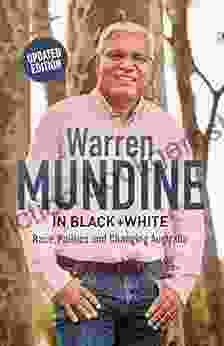
 Dylan MitchellRace Politics and the Changing Face of Australia: A Comprehensive Examination
Dylan MitchellRace Politics and the Changing Face of Australia: A Comprehensive Examination Sam CarterFollow ·7.2k
Sam CarterFollow ·7.2k Jessie CoxFollow ·17.6k
Jessie CoxFollow ·17.6k William FaulknerFollow ·10.9k
William FaulknerFollow ·10.9k Logan CoxFollow ·17.7k
Logan CoxFollow ·17.7k Michael SimmonsFollow ·16k
Michael SimmonsFollow ·16k Bradley DixonFollow ·19.2k
Bradley DixonFollow ·19.2k Felipe BlairFollow ·15.3k
Felipe BlairFollow ·15.3k Craig BlairFollow ·14.6k
Craig BlairFollow ·14.6k
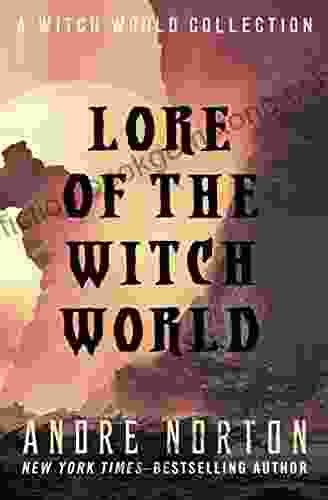
 Kyle Powell
Kyle PowellThe Enchanting Realms of Witch World: A Collector's Guide...
In the vast and...

 Ethan Mitchell
Ethan MitchellSwap Night on Union Station EarthCent Ambassador 19: A...
On a crisp autumn evening in the...
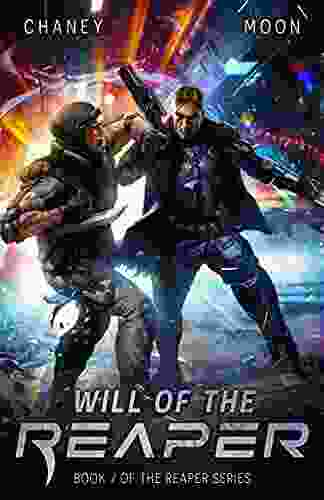
 Gage Hayes
Gage HayesThe Last Reaper: A Military SciFi Epic That Will Leave...
The Last Reaper...

 Christopher Woods
Christopher WoodsUnveiling the Masterpiece: The Original Pattern Bible by...
In the realm of pattern design, there...
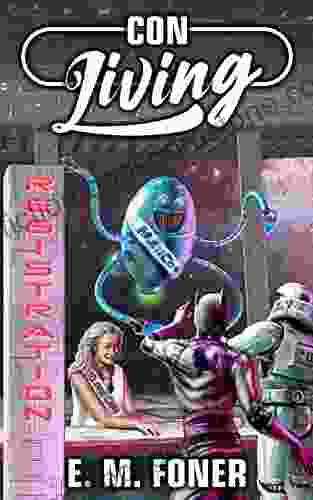
 William Golding
William GoldingDiscover the Unfathomable Con Living Earthcent Universe:...
An Expansive Cosmic Tapestry In the...
5 out of 5
| Language | : | English |
| File size | : | 1175 KB |
| Text-to-Speech | : | Enabled |
| Screen Reader | : | Supported |
| Enhanced typesetting | : | Enabled |
| Word Wise | : | Enabled |
| Print length | : | 286 pages |
| Lending | : | Enabled |


